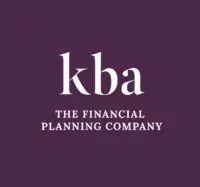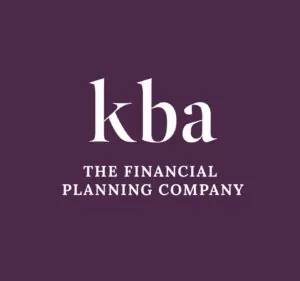The Treasury collected £2 billion in Inheritance Tax (IHT) during the first quarter of the 2023/24 tax year, according to a MoneyAge report on official HMRC figures.
With 2022/23 IHT receipts totalling £7.1 billion for the entire year, and having already surpassed the peak takings of £1.8 billion recorded in the third quarter of the 2022/23 tax year, IHT is starting to affect many more families.
Indeed, the Office for Budget Responsibility (OBR) estimates that IHT could raise as much as £8.4 billion by 2027/28.
The problem with IHT is that it can significantly reduce the amount of wealth that passes to your loved ones after your death. Little surprise then that IHT is among the UK’s most-hated taxes.
IHT becomes liable on your entire estate when you pass away
Although IHT is due on everything you own when you die, you can pass on a certain amount of wealth before it becomes liable to IHT.
This tax-free amount is known as the “nil-rate band”. In 2023/24, this allows £325,000 if you are single or £650,000 if you are married, as long as the first person to pass away leaves all of their assets to their surviving spouse.
You may also be eligible for the residence nil-rate band which, if you leave your home to children or grandchildren, could boost your tax-free allowance to £500,000 for a single person and £1 million for a married couple.
Anything exceeding these thresholds is typically taxed at 40%.
Both the nil-rate band and the residence nil-rate band have been frozen until at least 2028.
The good news is that if you plan ahead, you could reduce or eliminate any potential IHT charge on your estate, helping to ensure you leave as much as possible to your loved ones. So, here are five practical steps that could help make a substantial difference.
1. Give financial gifts while you’re still alive
Giving while living is a popular way to reduce a potential IHT bill.
Gifting money to family and loved ones while you’re living allows you to enjoy seeing the benefits of your generosity. Timed well, your gift could help them overcome major financial hurdles, and you can relax knowing that your loved ones are safe and secure in life.
There are several gifting rules that you could take advantage of.
In the 2023/24 tax year, you can gift:
- Up to £3,000 a year
- Money as wedding (or civil partnership) presents to your friends and family at rates of up to £5,000 for your children, £2,500 for your grandchildren or great-grandchildren, or £1,000 to any other individual.
- Up to £250 to any individual (not available where the gift recipient has received any larger gift from you in that tax year).
It’s also possible to make regular financial gifts using surplus income. While regular gifts can be for any amount, they must be made regularly and cannot be paid from capital. Regular gifts must come from your normal income and payments must not reduce your own standard of living.
Whenever you’re gifting to reduce IHT, it’s important to keep accurate records. This is particularly true if you’re using the “gifting from income” exemption.
We can help you to ensure you make the most of your gifting allowances, and that you have the records to evidence the gifts you have made. To find out more about giving financial gifts as part of your estate plan, please get in touch.
2. Set up a trust
The beauty of trusts is that once an asset is held in trust, it may no longer be included in the value of your estate for IHT purposes. This can make them a highly useful and effective way to distribute wealth to your chosen recipients.
You can use a trust to pass property or other assets from yourself to a trustee. The trustee then manages the assets on behalf of whoever you determine is the beneficiary.
When setting up a trust, you’re able to set out the details of how the trustees should manage the assets. This can mean that a trust can be a useful way to pass money on to your children or grandchildren. This is especially true if they are not old enough to make financial decisions on their own.
The tax rules surrounding trusts can be complicated, so it’s often best to work with a planner and trust expert if you’re considering this option.
3. Pass your pension on
Although your investments and savings will count towards the value of your estate, when it comes to IHT, pension savings usually fall outside of your estate.
This, alongside the recent removal of the Lifetime Allowance (LTA), means that your pension could play a useful role in creating a tax-efficient estate plan.
If you die before age 75, all of your unused pension savings can pass to a chosen beneficiary tax-free. If you’re over age 75 when you die, your beneficiary can still receive your unused pension pot, but they will pay Income Tax at their marginal rate.
Rather than nominating your pension beneficiaries in your will, you’ll need to complete an “expression of wish” form from your pension provider. If you’d like to know more, please get in touch.
4. Leave a charitable gift in your will
Leaving money to charity in your will could help you to reduce your total IHT bill.
If you leave 10% of your total estate to charity in your will, the government will reduce your IHT rate from 40% to 36%.
4% discount may not sound like much, but by supporting a cause close to your heart, more of your estate could also end up with your family.
5. Draw up an estate plan with your financial planner
It’s not always straightforward to manage your finances and maximise tax efficiencies when you pass away. And we’ve only touched on a few of the ways you might be able to reduce a potential IHT charge here.
To ensure as much of your wealth as possible passes to your family and loved ones, we’ll listen to your concerns and wishes and help you draw up a robust plan.
When you have an estate plan in place, we’ll sit down with you and review it regularly to make sure it continues to meet your needs as your family and circumstances change.
Get in touch
If you would like to discuss your potential exposure to IHT and how you may be able to leave more money to loved ones, please get in touch. Email contactme@kbafinancial.com or call us on 01942 889 883.
Please note
This blog is for general information only and does not constitute advice. The information is aimed at retail clients only.
HM Revenue and Customs practice and the law relating to taxation are complex and subject to individual circumstances and changes which cannot be foreseen.
For specialist tax advice, please refer to an accountant or tax specialist.
Trusts, Estate Planning and Tax Planning are not regulated by the Financial Conduct Authority.
A pension is a long-term investment not normally accessible until 55 (57 from April 2028). The value of investments and any income from them can fall as well as rise and you may not get back the original amount invested.
Past performance is not a guide to future performance and should not be relied upon.
Approved by The Openwork Partnership on 29 August 2023.

